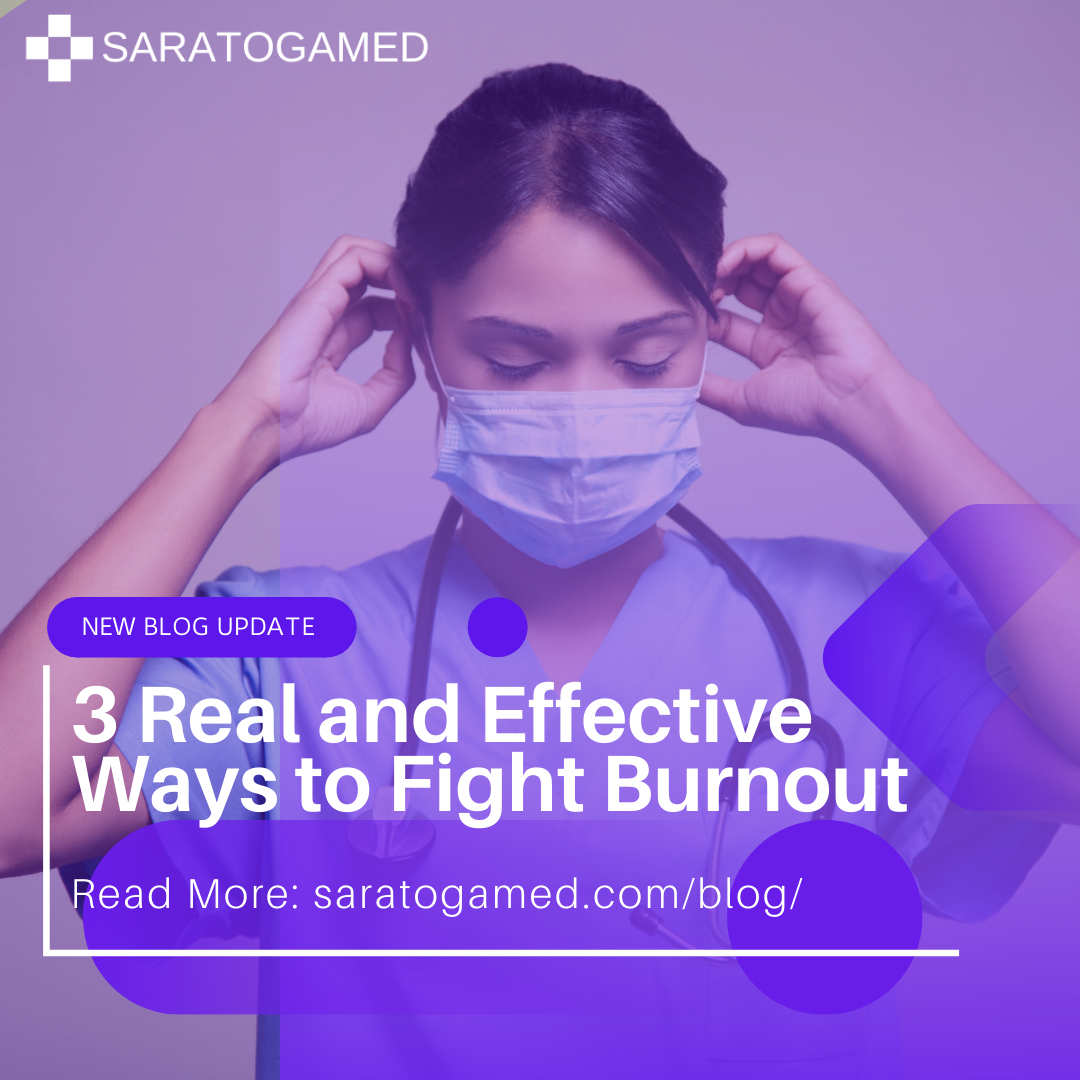3 Real and Effective Ways to Fight Burnout
Healthcare has always been a career with a high risk of burnout; long, irregular shifts, high intensity environment, the need to give much of yourself physically, mentally, and emotionally. The demands on healthcare workers show no signs of slowing down and burnout is at an all-time high.
Everywhere you turn now, there is advice to focus on “self-care” and drink enough water, staff appreciation gifts at hospitals and clinics, and other superficial advice for how to keep going through these difficult times. In reality, these things might be briefly helpful but are not truly addressing the deep underlying distress making many healthcare workers feel depleted, irritable, exhausted, and thinking about leaving their jobs. Below are some real and effective actions you can take to help improve your mental health and fight the effects of burnout.
Move your body - Exercise is a time tested way to improve mental health and keep your body working well. It also doesn’t have to be rigorous or at a gym and can take many forms, both indoor and outdoors. It can be setting a fitness goal with a friend and working out together, having a dance party in your living room while you do chores, playing a sport you enjoy, family bike rides, or even just a walk around the block. Regular exercise releases endorphins that contribute to a sense of wellbeing, helps regulate your circadian rhythm and leads to better sleep, and if you exercise outside you also increase your Vitamin D absorption, which further improves mental health and sleep. So get moving!
Prioritize sleep - No, really. It can be difficult to fit a regular sleep routine into a busy work schedule, especially if you add in trying to maintain relationships or care for children. But adequate sleep is very necessary to allow your brain to rest, reset, and keep your body and mind working optimally when you are awake. Focusing on sleep doesn’t just mean getting a certain amount of sleep, but ensuring the quality of sleep is good. Keep your sleeping space dark and cool, try to go to sleep and wake up around the same time each day, and keep screens and blue light out of your sleeping space to allow your circadian rhythm to be most effective. If you have problems like insomnia, chronic fatigue, or snoring, don’t put off getting those assessed.
Maintain support systems - One of the most predictive factors of resilience is the presence of a good support system. This can be friends, partners, children, relatives, mentors, or anyone else who cares about you and enjoys your company. Keeping up with those important relationships, whether in person, virtually, or just a quick message here and there can have a big impact on mental health. While you can’t always explain the details of whatever you’re dealing with at work, just letting someone know you are struggling or feeling overwhelmed and having them support you can be extremely validating and helpful for well being. These relationships can also help you relax and unwind, improving compartmentalization and leaving work at work.

